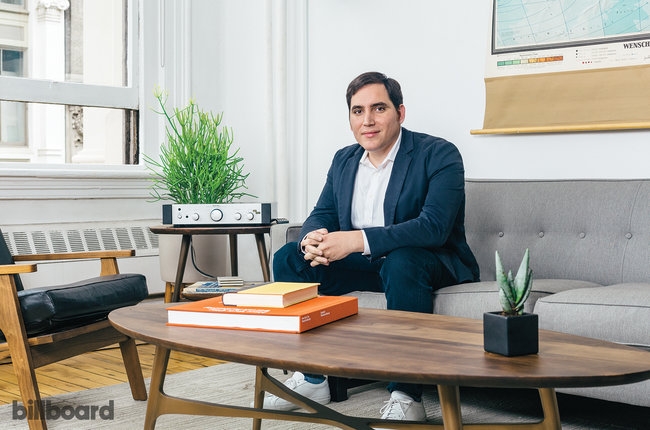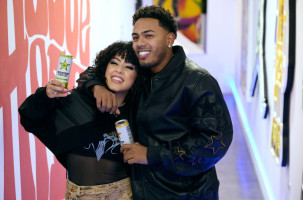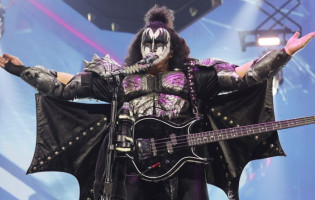Port Washington, N.Y., native Justin Kalifowitz, 35, thinks both big and small. Since Downtown Music Publishing was founded in 2007, the company has made deals for the songwriting catalogs of Ryan Tedder, Benny Blanco and Niall Horan; served as administrator for independents like Big Yellow Dog and the John Lennon and Yoko Ono catalogs; and expanded to Los Angeles, London, Nashville, Amsterdam and, in February, Tokyo.
But Downtown, based in Manhattan, remains dedicated to its indie roots. In 2011, Kalifowitz built Songtrust, an online platform that allows indie songwriters -- essentially anyone -- to register their compositions and collect royalties worldwide. While Downtown manages 100,000 songs, Songtrust administers 1.3 million, and the company reports collections were up 90 percent in 2016.
Kalifowitz has also been working on NY is Music, the advocacy coalition he co-founded in 2014 that helped the NYC Mayor's Office of Media & Entertainment commissioner Julie Menin organize the inaugural New York Music Month, a city-sponsored event this June that includes concerts, conferences and initiatives like 2,000 hours of free rehearsal space. With the city's monthlong celebration under way, Kalifowitz speaks about overseas growth, indie songwriters and New York's music economy.

What is Downtown's focus this year?
We are focused on our international expansion, like opening the Tokyo office earlier this year. We continue to acquire premier song copyrights, including local repertoire though Amsterdam and Tokyo offices, and we’re looking for other markets to enter. What’s accelerated our international expansion is the Songtrust platform; we are now collecting royalties directly from 40 collection-management organizations around the world, which allows us to expedite collections and accurately account to our clients.
As part of that, we have added significant staff -- 10 new hires in the last few months alone, with the particular focus on data analysis and digital rights management. We now have direct licenses on the digital side with YouTube, Apple, Amazon and Pandora, which is great. But it also creates a different kind of workload for publishers.
What new songwriting deals have you done lately?
We have acquired the Ryan Tedder catalog and partnered with him going forward for new songs; we also manage his Patriot Games publishing company. We have been administering One Direction song copyrights for a number of years, but we did a separate deal signing the solo works of Niall Horan. We acquired the catalog of Benny Blanco, one of the most prolific producers of the past 10 years. We just partnered with the Invisible Men, who produced a number of songs on Zayn [Malik’s] last album. As a full service music publisher, we are in the business of owning copyrights, managing copyrights, and developing new copyrights, so all of this is part of executing on our strategy.

How did you build your Nashville presence?
We spent a number of years going down there and learning the market and meeting lots of people and we realized pretty quickly that the best thing to do is hire someone from the community, who is extremely well respected and had a great reputation for identifying and nurturing talent. We found that in Steve Markland, who is vp A&R in Nashville, and who has done a fantastic job of building out his team. We now have four staffers in Nashville and a dozen active songwriters, with seven singles at country radio in the past year, including two No. 1s. The Nashville roster includes singer-songwriters like Jason Isbell, Sturgill Simpson and Rosanne Cash; and veteran songwriters like Marc Beeson, Kendel Marvel and Kelly Archer. One of the songwriter-artists we developed, Jillian Jacqueline, just got signed to Big Loud Records. We also started to administer Nashville publishers like Big Yellow Dog, one of the most vibrant publishers down there.
What led you to start Songtrust?
Songtrust was started as an idea: Was it possible to create a connection between a songwriter and all of their royalties around the world with the same efficiency we are providing to our clients on the Downtown side? We found there were tons of songwriters and artists who weren't doing publishing deals or joining performing rights organizations and didn't know there was quite a bit of revenue out there for them. We built a system that enables songwriters at any level to register their songs and participate in any direct digital deals we do. We collect mechanical, performance and digital royalties. Typically, there is a long-term contract for all songs of a songwriter, but with Songtrust, the arrangement is done on a song-by-song, territory-by-territory -- and eventually we hope to drill down to -- right-by-right basis.

How large is Songtrust?
The Songtrust catalog has over 100,000 songwriters and about 1.3 million copyrights, with over 90 percent of the song copyrights connected to ISRCs [recordings]. Using Spotify’s API [application programming interface], we enable Songtrust songwriters to connect their composition directly to all the covers of their song that exist -- we have automated that process. We also use an in-house propietary YouTube claiming tool that enables searches to bubble up likely cover versions, which then allows us to claim those for the songwriter’s composition on YouTube.
What's your role in New York Music Month?
I am the co-founder of NY is Music, which is an advocacy organization we we started to advance the importance of music. When we started, there was no dialog between the music industry and the city and the state. If you look at the Mayor’s impact study, the NYC music industry supports 60,000 jobs, $5 billion in wages and $21 billion in economic output, which are significant numbers that nobody had ever mentioned before. Also, NYC has has more digital music companies -- 72 -- than any other city. That’s more than Los Angeles and San Francisco combined. So all of these aspects of NYC music economy, not to mention the cultural impact of music and the genres across the city, are being celebrated.
This story originally appeared in the June 24 issue of Billboard.








